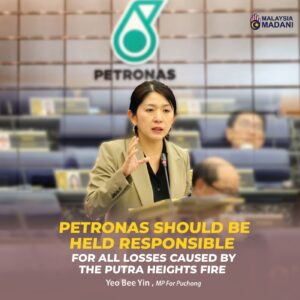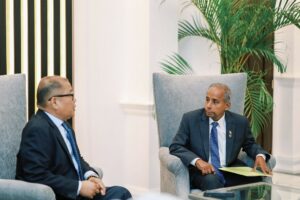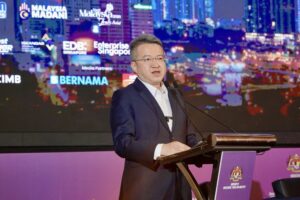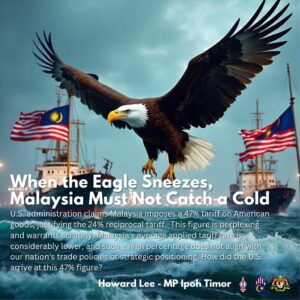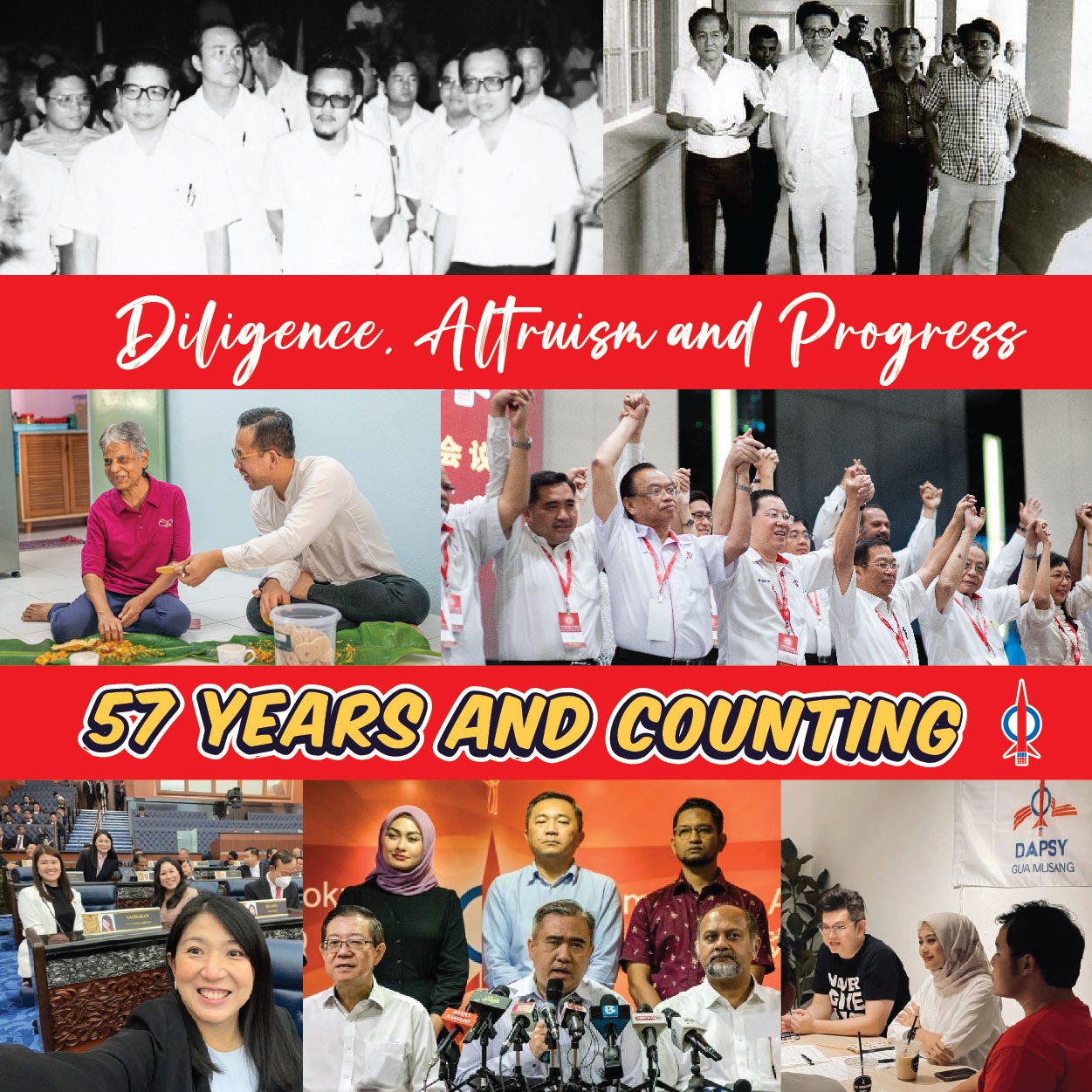
57 years may have come and gone since the Democratic Action Party was first formed, but we find that one thing remains the same. DAP’s continuous fight for a better future for all Malaysians. While it may have been a household name for some time now, it certainly wasn’t the case for the DAP back in 1966 when the party was first formed. The party, which was conceived from a need to build a multi-racial and progressive party, faced immense hurdles and obstacles from those who felt threatened by DAP’s existence.
The DAP began as an opposition party in Malaysia, championing democracy and social equality. DAP’s early years were led by democratic socialist individuals who sought to challenge the ruling government’s pro-authoritarian policies and help vulnerable communities who were marginalised. While it is true that the party started off with more support from the minority races in Malaysia, the DAP has consistently been a party that represents the needs of all Malaysians regardless of race and religion.
Over time, the DAP evolved and broadened its base of support, attracting activists such as Ahmad Nor, a political activist and trade unionist, Fadzlan Yahya who was once the DAP Socialist Youth (DAPSY) Chief and the vice chairman of the party, Ibrahim Singgeh who became the first State Legislative Assembly Rep (ADUN) for DAP from the Malay community, Ahmad Ton who was DAP’s Deputy Secretary-General from 2004 -2008, and many more prominent members from the Malay community who went on to contest state and federal elections under the DAP flag.
As of today, the party has seven Malay ADUNs (Tanjong Bunga, Seri Delima, Tebing Tinggi, Tras, Dusun Tua, Bandar Utama, and Skudai), three Malay Members of Parliament (Bentong, Bangi and Bukit Bendera) and the party itself has also won in seats in Malay majority constituencies such as Negeri Sembilan and Pahang.
This goes to show that many Malaysians care about good governance, transparency, human rights, and economic equality and will elect representatives who share their same values.
During Lim Kit Siang’s tenure as Secretary-General, from 1978 to 1999, the DAP became a formidable force in Malaysian politics. It won 13 Parliamentary seats and 31 State Assembly seats in 1969 and steadily increased its presence in subsequent elections. In the 1990s, the DAP became a part of the larger opposition coalition, the Barisan Alternatif, which later evolved into the Pakatan Rakyat coalition.
Former Secretary-General Lim Guan Eng and current Secretary-General Anthony Loke, have both looked to further solidify the party’s presence and appeal to a bigger demography of Malaysians. The party has also played a key role in asking for greater transparency and accountability in government, and has been very strict when it comes to corruption and abuse of power.
The party gained footing in the 2008 general election when it won 22 Parliamentary seats, and helped to bring about a change in the ruling Barisan Nasional for the first time in the country’s history by denying them the two thirds majority needed to make constitutional changes. On top of that, the DAP won all their contested seats in Penang which resulted in Penang being the first Malaysian state to be led by a DAP government
The DAP’s involvement in the 2018 General Election was crucial in helping to secure the victory for the Pakatan Harapan coalition. This resulted in a historic change in government after more than six decades of rule by the Barisan Nasional coalition. The DAP was one of four parties that formed the Pakatan Harapan coalition, which contested against the Barisan Nasional coalition that was led by former Prime Minister Najib Razak. The DAP won 42 parliamentary seats, making it the party with the highest number of parliamentary seats in the Pakatan Harapan coalition.
During the 2018 election campaign, the DAP focused on key issues such as the need for institutional reforms, combating corruption, and the promotion of racial and religious harmony. The party also emphasised the importance of providing solutions for economic inequality and ensuring that all Malaysians had access to education, healthcare, and other basic necessities.
After the 15th Malaysian General election in 2022, DAP saw themselves back in the government seat as part of the Pakatan Harapan coalition who together with Barisan Nasional, GRS and GPS came to an agreement to come together as a Unity Government after a simple majority vote could not be established.
Despite winning the most Parliamentary seats in the election, the party was allocated the least number of ministerial and deputy ministerial positions. However this did not deter the DAP from going on to work for Malaysians and the country. “DAP’s struggle in politics is not for ministerial positions but for the country. So whatever positions we are given, we will do our best for Malaysia”, said DAP Secretary-General Anthony Loke. This was evident in a recent public survey conducted by research firm O2 Malaysia on Malaysians’ satisfactory levels with ministerial performance, which placed three DAP ministers in the top four of the survey. This is a reflection of the diligence and commitment of the party’s members who were entrusted with the mandate of Malaysians.
Overall, the DAP has maintained its advocacy for a more democratic and inclusive Malaysia, and in playing a crucial role in shaping the political landscape of the country. The DAP has also increased its efforts to expand its support base beyond its stronghold in urban areas, through engagement with rural and suburban communities and promoting its message of transparency, good governance, and equality for all Malaysians.
